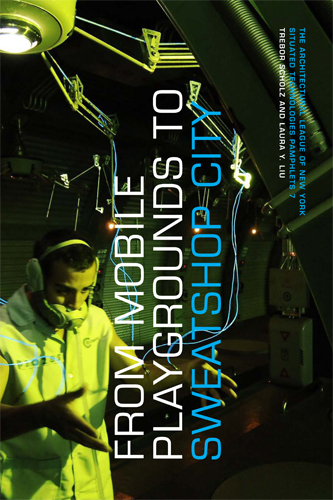Bruno Gullì: Earthly Plenitudes. A Study on Sovereignty and Labor (2010)
Filed under book | Tags: · capitalism, economics, everyday, labour, life, marxism, ontology, philosophy, politics, sovereignty

A fierce critique of productivity and sovereignty in the world of labor and everyday life, Bruno Gullì’s Earthly Plenitudes asks: can labor exist without sovereignty and without capitalism? He introduces the concept of dignity of individuation to prompt a rethinking of categories of political ontology. Dignity of individuation stresses the notion that the dignity of each and any individual being lies in its being individuated as such; dignity is the irreducible and most essential character of any being. Singularity is a more universal quality.
Gullì first reviews approaches to sovereignty by philosophers as varied as Gottfried Leibniz and Georges Bataille, and then looks at concrete examples where the alliance of sovereignty and capital cracks under the potency of living labor. He examines contingent academic labor as an example of the super-exploitation of labor, which has become a global phenomenon, and as such, a clear threat to the sovereign logic of capital. Gullì also looks at disability to assert that a new measure of humanity can only be found outside the schemes of sovereignty, productivity, efficiency, and independence, through care and caring for others, in solidarity and interdependence.
Publisher: Temple University Press, Philadelphia, 2010
ISBN 978-1-59213-979-8
200 pages
Trebor Scholz, Laura Y. Liu: From Mobile Playgrounds to Sweatshop City (2010)
Filed under book | Tags: · city, internet, labour, life, network culture, technology, urbanism, web 2.0, work

“The authors reflect on the relationship between labor and technology in urban space where communication, attention, and physical movement generate financial value for a small number of private stakeholders. Online and off, Internet users are increasingly wielded as a resource for economic amelioration, for private capture, and the channels of communication are becoming increasingly inscrutable. Liu and Scholz ask: How does the intertwining of labor and play complicate our understanding of exploitation?”
Publisher The Architectural League of New York, New York, Fall 2010
Situated Technologies Pamphlet series, 7
Creative Commons Attribution-Non-commercial-Share Alike 3.0 Unported License
77 pages
PDF, PDF (2 MB, updated on 2016-6-19)
Comment (1)Roberto Esposito: Bíos: Biopolitics and Philosophy (2004/2008)
Filed under book | Tags: · biopolitics, biopower, life, nazism, philosophy, politics

A significant political theorist advances the discussion of biopolitics.
Roberto Esposito is one of the most prolific and important exponents of contemporary Italian political theory. Bíos—his first book to be translated into English—builds on two decades of highly regarded thought, including his thesis that the modern individual—with all of its civil and political rights as well as its moral powers—is an attempt to attain immunity from the contagion of the extraindividual, namely, the community.
In Bíos, Esposito applies such a paradigm of immunization to the analysis of the radical transformation of the political into biopolitics. Bíos discusses the origins and meanings of biopolitical discourse, demonstrates why none of the categories of modern political thought is useful for completely grasping the essence of biopolitics, and reconstructs the negative biopolitical core of Nazism. Esposito suggests that the best contemporary response to the current deadly version of biopolitics is to understand what could make up the elements of a positive biopolitics—a politics of life rather than a politics of mastery and negation of life.
In his introduction, Timothy Campbell situates Esposito’s arguments within American and European thinking on biopolitics. A comprehensive, illuminating, and highly original treatment of a critically important topic, Bíos introduces an English-reading public to a philosophy that will critically impact such wide-ranging current debates as stem cell research, euthanasia, and the war on terrorism.
Translated and with an introduction by Timothy Campbell
Originally published as Bíos: Biopolitica e filosofia, 2004, Giulio Einaudi editore s.p.a., Turin
Publisher U of Minnesota Press, 2008
Volume 4 of Posthumanities Series
ISBN 0816649901, 9780816649907
230 pages
PDF (no OCR; updated on 2012-11-17)
Comment (1)
